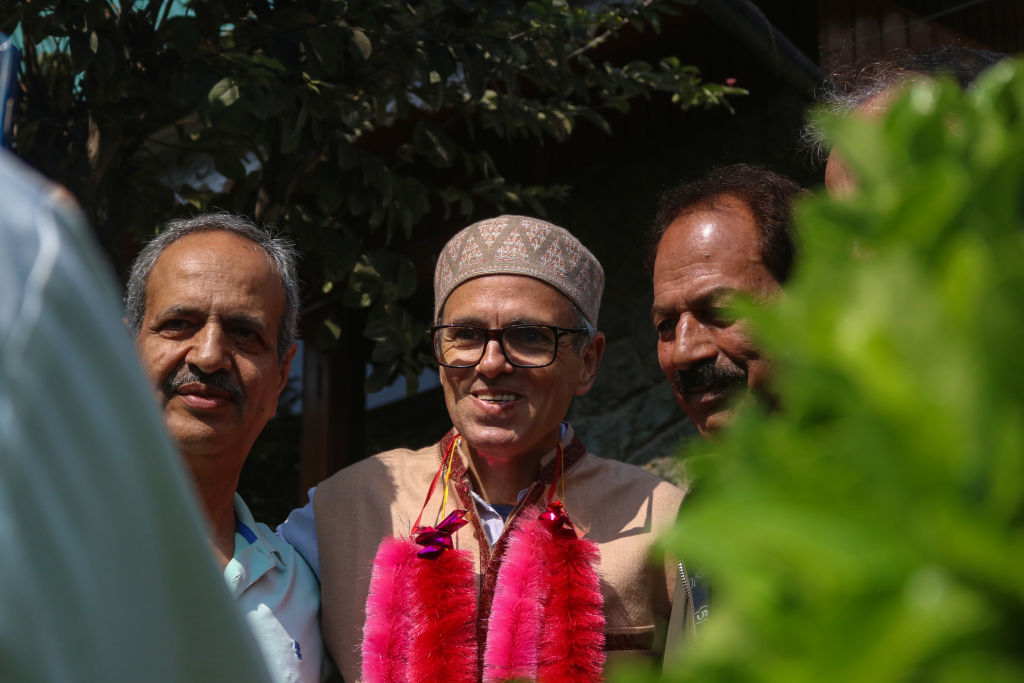National Conference leader Omar Abdullah was sworn in as the Chief Minister of Jammu and Kashmir on Wednesday, becoming the Union Territory’s first elected head of government since its reorganization.
The oath-taking ceremony was held at the Sher-i-Kashmir International Convention Centre (SKICC) in Srinagar, with J&K Lieutenant Governor Manoj Sinha administering the oath of office.
L-G Manoj Saxena and J-K Lieutenant Governor Manoj Sinha administered the oath of office to Abdullah and his council of ministers at the Sher-i-Kashmir International Convention Centre (SKICC) in Srinagar.
National Conference MLA from Mendhar Javed Ahmed Rana, Javid Ahmad Dar from Rafiabad, Sakina Itoo from DH Pora and Surinder Kumar Chowdhary were also administered oath by LG Sinha as ministers in Cabinet.
Independent MLA from Chhamb assmebly seat Satish Sharma was given a place in Omar Abdullah-led cabinet.
This marks the formation of the first elected government in Jammu and Kashmir since the abrogation of Article 370 and the bifurcation of the state into two Union Territories — Jammu and Kashmir, and Ladakh — in August 2019.
In a post on X, Prime Minister Narendra Modi extended his congratulations to Omar Abdullah, saying, “Congratulations to Shri Omar Abdullah Ji on taking oath as the Chief Minister of Jammu and Kashmir. Wishing him the very best in his efforts to serve the people. The Centre will work closely with him and his team for J&K’s progress.”
https://x.com/narendramodi/status/1846458490014876034
Omar Abdullah, who previously served as the Chief Minister of the former state from 2009 to 2014, comes from a prominent political family. His grandfather, Sheikh Mohammad Abdullah, was the first Prime Minister of Jammu and Kashmir after its accession to India and later became the state’s Chief Minister. His father, Farooq Abdullah, has held the office of Chief Minister three times.
The swearing-in ceremony was attended by prominent leaders from the INDIA bloc, including Akhilesh Yadav, Supriya Sule, Prakash Karat, and Kanimozhi, reflecting the broader political significance of the event.
In the recent Jammu and Kashmir Assembly elections, the National Conference emerged victorious with 42 of the 90 seats, while its alliance partner, the Congress, managed to win just six seats.














